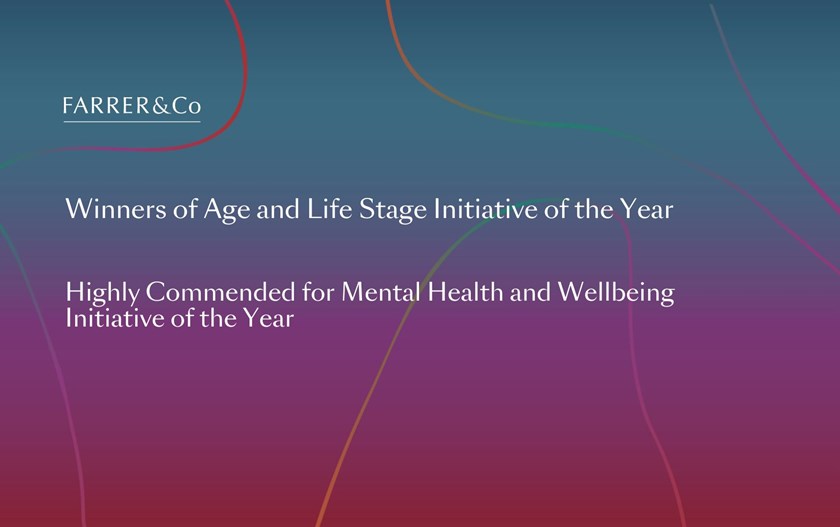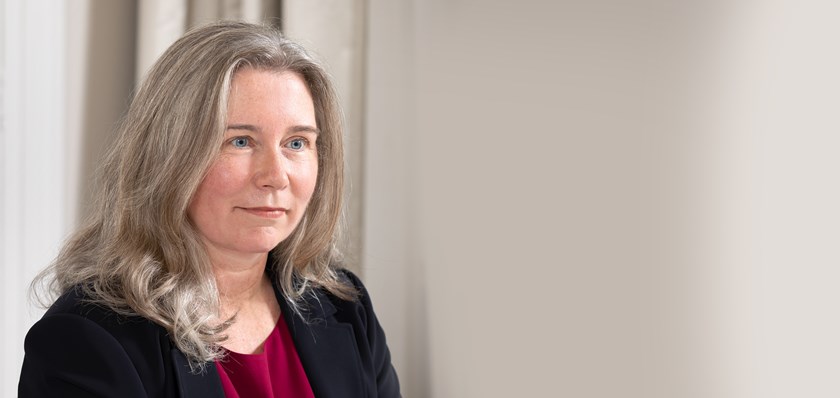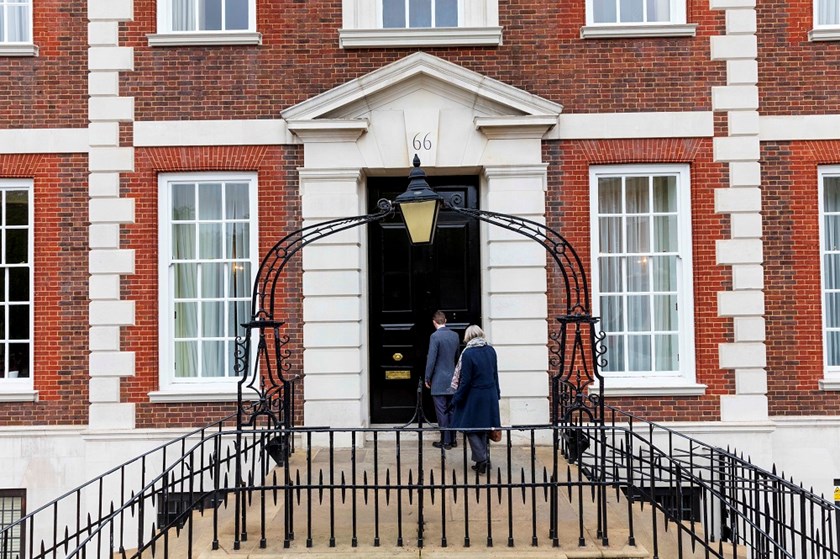Mandatory Reporting of Child Abuse: the UK debate, the Australian experience, and a different perspective from Germany
News

Recent cases of child abuse in the UK, for example the murder of Peter Connolly (known as "Baby P"), have shocked a public slowly waking up to the appalling nature and extent of such crimes. Much of the reaction in the media has centred on the missed opportunities to identify abuse and prevent its escalation. Pressure is building on education, health, and social care professionals to make sure they do not fail to identify children at risk.
However there are concerns that this pressure is generating a 'climate of fear' among professionals. This concern has been fuelled further by a recent suggestion by David Cameron that social workers could find themselves facing jail for failing to act on evidence of child sexual abuse. The result has been an explosion in the number of children's cases reported to social services in the UK over fears of abuse or neglect. An investigation by the University of Central Lancashire has found that over 150,000 children born in the year 2009-10 had been referred to local authority child protection teams in the first five years of their lives, or one in five of the age group.
On one level, this increase in reporting is a positive sign. Too often, institutions have been prone to 'gaze aversion', the tendency to avoid uncomfortable phenomena and look the other way. Worse, some bodies have in the past seemingly acted to 'cover up' cases of child abuse, whether out of collegiate loyalty, suspicion of social services, or a desire to protect an institution's reputation. Such negligence, whether wilful or not, contravenes current professional and statutory guidance on safeguarding, as laid out in documents such as Keeping Children Safe in Education and Working Together to Protect Children.
An increase in local authority referrals appears to suggest that organisations with a duty of care towards children have woken up to the fact that, whatever the circumstances, the safety and welfare of the child should take priority over all other considerations. The vigilance of professionals and the public, and their willingness to come forward with concerns of abuse, is a key step on the path to eradicating child abuse in the UK.
However, the major increase in referrals is not unambiguously positive. It is exacerbating pressure on local authority children's services teams already suffering from budget cuts and a recruitment crisis: 17% of social service jobs are currently unfilled, up 27% from 2014. Moreover, a majority of referrals ultimately lead to nothing beyond a preliminary investigation, meaning that social workers are spending more and more valuable time investigating concerns which prove to be unsubstantiated – not in itself time wasted, but inevitably eating into their resource.
Against this backdrop of an escalation in child abuse referrals to local authority children's services, debate is growing in the UK over whether such reporting should be made mandatory for all professionals working in institutions with a duty of care towards children. Proposals for mandatory reporting were part of Keir Starmer MP's Victims of Crime Bill, prompted by "historic examples of institutions choosing not to report". Campaigners for mandatory reporting argue that only such legal clarity can deliver the necessary cultural change within organisations; to rely on professional bodies is "complacent and risible", says one. The NSPCC recognises the need for legislation and regulation to reinforce a strong safeguarding culture, which itself is the best form of protection for children at risk. The charity advocates a balance between building in good practice and punishing bad practice; both are important in creating such a culture.
Opponents to mandatory reporting point out that there is little international evidence to suggest that it improves child protection. On the other hand, they argue, mandatory reporting can reduce the cooperation of families, and further drive abuse into the shadows as some victims choose not to tell of their abuse for fear of sparking an investigation. Furthermore, making reporting mandatory risks further straining children's services departments whose resources are already stretched to breaking point. Even as things stand now, children's services are struggling to cope with the volume of referrals. In some cases, this has resulted in high-priority children not receiving the necessary protection, because workers are spending more time processing and investigating referrals than ensuring safeguarding measures. The recent death of Liam Fee, a toddler killed by his mother and her girlfriend, took place despite referrals having been made to the local authority. In 2008, Khyra Ishaq starved to death aged seven despite warnings to Birmingham city council that she was at risk. Furthermore, too much emphasis on reporting could risk a 'Pontius Pilate' effect among education and healthcare professionals, who might feel that, by reporting their concerns, they have passed the buck to 'experts', and no longer need to pay as much attention to the child concerned.
The evidence from countries which have introduced mandatory reporting laws is inconclusive, but suggests that mandatory reporting is certainly no 'silver bullet'. Cultural change is difficult to measure and assess, so the positive impact of mandatory reporting will always be, to some extent, a matter of opinion. Weaknesses in the system are easier to point out, as the Australian experience suggests. In 1992-93, prior to the introduction of mandatory reporting laws in 1993, social services in Victoria investigated 92% of notifications received; this fell to 40% by 1999-2000. Moreover, overwhelmed social services can spend too much time investigating concerns which prove unsubstantiated, rather than safeguarding children in serious need. In New South Wales, where mandatory reporting laws are in force, 10% of all children had been referred by the age of five... but 79% of those reports were unsubstantiated (data from 1999-2000). A very similar picture could be drawn for Queensland. In Western Australia, which by contrast has no mandatory reporting laws, only 56% of notifications were unsubstantiated.
Research from the USA has shown that mandatory reporting has resulted in a dramatic decline of offenders' revelations of CSA. With the loss of confidentiality and the certainty of a report being made to the police and social services, offenders no longer confide in their health and social care professionals. Indeed, these professionals have become seen as prosecutors, not therapeutic supporters. The consequence of this change has been argued to drive abuse further underground, as offenders and potential offenders cannot seek assistance without risking prosecution. The approach in Germany is very different, and sheds some light on alternatives to mandatory reporting.
"Do you like children in ways you shouldn't?" That is the slogan of a German Youtube advert which shows a man watching a young boy and his mother on a busy train, before visibly realising that something within himself is not right. The video is one of several in a media campaign run by 'Kein Taeter werden' ('Don't Offend'), a prevention network which works to prevent child sex abuse in Germany. The network offers free treatment to adults who have sexual desires towards children through a two-year programme, which draws on psychotherapeutic, sexological and medical approaches. It aims to help people with paedophilia and hebephilia develop the skills necessary to control their sexual impulses, and thus to prevent direct sexual assault or indirect sexual abuse such as the consumption or production of child pornography. 'Don't Offend' began in 2005 in Berlin as the 'Dunkelfeld Project' (Project Dark Field) of Charité Hospital's Institute for Sexual Medicine, and has grown to cover ten major German cities. 6,412 people had anonymously contacted the prevention network for help by March 2016. The Dunkelfeld Project was discussed in a previous CPU briefing by Professor Andy Phippen, on the importance of a public discussion about the accessibility of indecent images of children online, which is available here.
'Don't Offend' is starting to shift the debate on this most controversial of topics. Its key message is that paedophiles and hebephiles are not innately guilty because of their sexual desires, but that they are responsible for their sexual behaviour - and that help is available to prevent them committing abuse. It rests on a fundamental distinction being drawn between sexual desires towards children, and child sexual abuse. This distinction also lies at the heart of research conducted in the UK by Dr Sarah Goode, at the University of Winchester. Dr Goode suggests that paedophilia is badly understood: is it a sexual orientation? A medical diagnosis or a psychiatric condition? Perhaps a paraphilia (a disorder of sexual function) or a fetish? But whatever its precise classification, Dr Goode insists that paedophilia is in a separate conceptual category to child sexual abuse. Crucially, she argues, not all paedophiles are child abusers, and not all child abusers are paedophiles. Despite this, however, the distinction is one that the media and general public rarely consider.
The Dunkelfeld Project and Don't Offend's prevention network rest on the fact that Germany has no mandatory reporting law. Indeed, the network's medical professionals and counsellors have a legal duty of confidentiality. This applies even if patients admit to having committed CSA or to watching child pornography. "According to the German legal code, therapists are forbidden from revealing anything that happens in the context of treatment," said Laura Kuhle, a clinical psychologist and one of Dunkelfeld's therapists, in an interview with The Guardian in 2015. "If people mention anything in therapy that could make them criminally culpable, they are protected. In other countries, that's not the case."
The German approach is thus radically different from that in countries with mandatory referral laws. The UK seems to be heading towards stricter reporting regulation, although the Starmer bill will now not come before parliament until next session, and most likely after a broad consultation on the issue of mandatory reporting. Ultimately, both approaches (mandatory reporting and confidentiality for self-confessed paedophiles) share the same aim: to prevent CSA taking place. As things stand, it is difficult to assess which is more effective. We would have thought that rather than rushing through legislation, which can often have unintended consequences, the issue of mandatory reporting is one which could and should be entrusted to the Goddard Inquiry to make recommendations on, once it has heard and considered relevant expert evidence from jurisdictions with different approaches.
If you require further information on anything covered in this briefing please contact David Smellie ([email protected]; +44(0)20 3375 7394) Hugo Macklin or your usual contact in the Child Protection Unit or visit our Child Protection webpage for more information.
This publication is a general summary of the law. It should not replace legal advice tailored to your specific circumstances.
© Farrer & Co LLP, June 2016







